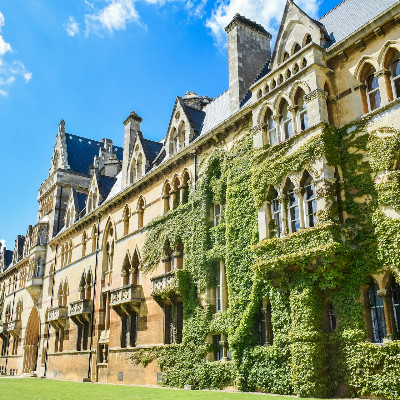Everything You Need to Know About Gender Studies
Gender studies is a relatively young interdisciplinary program aimed at studying gender identity.If in Russian universities this discipline can be found as a specialized discipline or as a subject of choice at the faculties of sociology, psychology or political science, then in North American or European higher educational institutions it increasingly began to be found as a separate master's or PhD program. Why is this direction so attractive and what exactly can be researched here?
What is gender studies?
Today, most scholars believe that the concept of "gender" is different from the concept of "sex". For the first time, the American psychoanalyst Robert Stoller spoke about this, who argued that the study of sex is a subject area of biology and physiology, and gender analysis should be considered as a subject area of research in psychology, sociology and other humanitarian areas. Since gender roles are not determined by genes, i.e.are not congenital, by the 70s and 80s of the last century, simultaneously with the growth of the "second wave" of feminism in the USA and the countries of Western Europe, there was a need to study this socio-cultural phenomenon separately and in more detail. Many consider gender research to be a feminist project, however, this is not entirely true. In general ,gender studies include not only women's studies, but also men's studies (women's/men's studies), as well as studies related to gender and gender.Y es, here it is proposed to study the history and development of the feminist movement, but still learn everything about masculinity and femininity, equality and equality, and even analyze female images in Hitchcock's films. Specialists in the field of gender studies actively debate about the exploitation of female sexuality in advertising, about the imposition of gender roles by society, about gender discrimination, and also raise other no less pressing issues.
Recently, a rather interesting article by Courtney Young was published on the UNICEF website "10 things women's studies taught me", in which a girl who received two degreesin Women's Studies, shares ten important insights she has come to through this program. For example, she claims that studying in this area helped her understand the importance of her own opinion and the ability to defend it. “Women's studies have opened up many ways for me to achieve equality in modern society,” writes Courtney.
About stereotypes
There is a strong disproportion in programs or courses on gender studies: the vast majority of girls and a very small number of boys (orthey are absent altogether).In 2012, at London School of Economics (LSE), out of 85 students enrolled in the Master's program in Gender Studies, there were only 8 guys. The GW Hatchet, an independent American student newspaper, also reports that very few guys dare to take courses in women's studies.Usually there are 1-2 daredevils in the class. However, according to The Guardian, the guys do not choose this program for training, not because of a lack of interest in it.Some students believe that almost all males attending courses in gender studies are members of the LGBT community, while others have a certain fear of feminism.There are also some students who consider gender studies frivolous, saying that it is necessary to fight for women's rights, but it is not at all necessary to delve into this topic.
Unfortunately, as we can see, this scientific field is not devoid of stereotypes.But it is worth noting that many courses on gender studies are taught by men, and any new male specialist in this area is especially valuable. Male students do not feel pressured during their studies by girls and are not perceived as typical representatives of the patriarchal world.
Job Prospects
The opportunities for degree holders in gender studies are virtually limitless. As a rule, these specialists are familiar with information on contemporary social problems, possess developed critical thinking and have a broad outlook on the world. According to statistics, about half of all European students who graduatestudying on the master's program "gender studies", within 6 months they find a job. Approximately 20% decide to continue their studies in order to obtain a PhD. The rest of the students begin to volunteer, get a part-time job, or find other activities for themselves.
Recent graduates are actively involved in research activities becausethe need to study gender issues is growing significantly. Often, recent masters or graduate students pursue careers in nongovernmental organizations, political parties and foundations. Graduates provide assistance to victims of domestic or sexual violence, fight for the rights of minorities, and teach various humanitarian disciplines. Of course, this is not the whole list of possibilities.
Where to study gender studies?
In general, today you can find a lot of master's and PhD programs in gender studies at universities in the USA, Canada and the UK. Here they are represented in almost every major university.In these countries, the study of gender has been engaged for a long time and quite successfully.For example:
San Francisco State University (USA, San Francisco)
The Faculty of Masters in Women and Gender Studies has existed since 1976 and is in factone of the very first such centers in this area in the United States.Students can do internships with organizations such as Amnesty International, LGBT Community Center, Global Fund for Women, California Women Lead and many others.
University of Toronto (Canada, Toronto)
these programs are done on feminist studies.However, research is distinguished by an obligatory interdisciplinary approach to study. Institute for the Study of Womenand Gender Studies University of Toronto guarantees financial support for its undergraduates and graduate students (both Canadians and foreigners).
University of Sussex (Great Britain, Brighton)
Master's Program in Gender Studies
Doctoral Program in Gender Studies(Humanities)
DoctoralProgram in Gender Studies(Social Sciences)
The University of Sussex is ranked in the top 4 research universities in the UK and boasts a range of gender studies programs. The first three programs presented above aim to explore the relationship between gender and the media, gender and violence, gender and the environment and health. Gender Studies is a classic program that studies feminism, gender and gender issues in the modern world. Doctoral programs differ in approaches to the study of disciplines: Humanities - an analytical approach, Social Sciences - a scientific one.
In addition to the above countries, some European higher education institutions have begun to open English-language programs on gender studies.For example:
Central European University (Hungary, Budapest)
Central European University is organized on the model of American universities and is accredited in the United States and the European Union. The University's Faculty of Gender Studies is also distinguished by a wide variety of offered master's programs,and also offers a PhD in this field.Moreover, CEU provides scholarships. You can learn more about the faculty and programs from the special video.
Utrecht University (Netherlands, Utrecht)
Education at the University of Utrecht in the field of gender studies is a combination of theoretical knowledge and practice (internship takes 25% of the educational process).Here are read such interesting courses as "feminist approaches to art", "postcolonial transformations in society" or "power in the digital age". There is an opportunity to get a scholarship.
University of Oslo (Norway, Oslo)
The University of Oslo is one of the leading universities in Scandinavia and throughout Europe. The structure of the program consists of theoretical courses on feminism, equality and independent work on your project. The two-year program in gender studies at this university involves studying for a semester at a partner university.International students can choose an elective course in Norwegian.
University College Dublin (Ireland, Dublin)
University College Dublin is Ireland's largest institution of higher education. The master's program involves the study of society from the perspective of gender theory, and also introduces the methods of achieving social and economic justice in the world. Within the framework of this program, you can choose courses on masculinity and on the history of the feminist movement.
Gender studies have become an integral part of most social sciences and humanities. In addition to the relevant faculties at universities, research centers are being opened to develop gender issues. If in Russia this discipline is still in its infancy, then in the West it is alreadyIt is developing rapidly and every year it attracts a large number of applicants, despite the stereotypes that pursue it.









